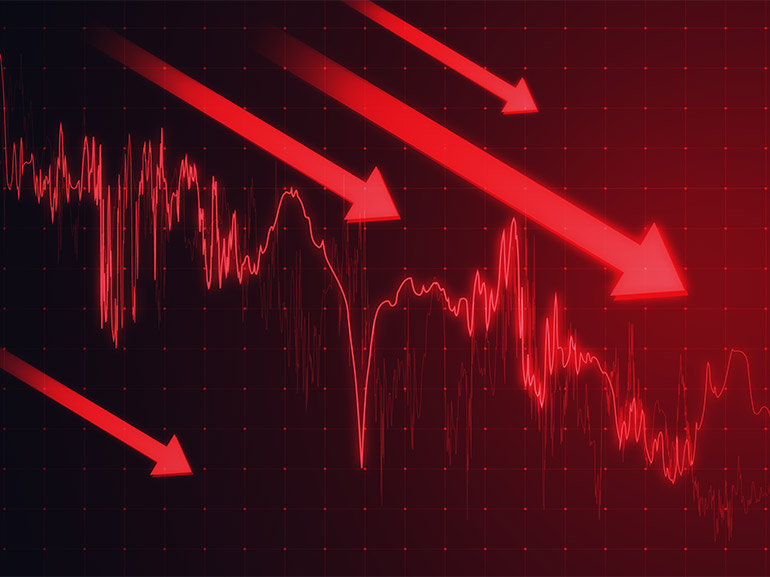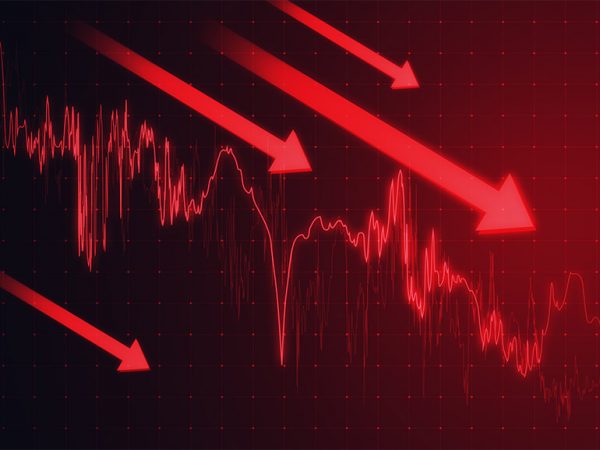Stock markets are often a great place to invest. That’s because they allow you to own a portion of some of the largest companies in a country. But the value of stocks isn’t fixed. If your holding is in a solid company, it’s likely to become more valuable over time, despite short-term dips. But what happens if the entire stock market doesn’t just dip a little, but crashes?
Read more about Finance
At the time this article is being written, the Nigerian Stock Exchange (NGX) has had a turbulent couple of weeks. And the US stock market has been pummeled, with the S&P 500 sliding 8.6% since February 19.
While we haven’t seen any activity that equates to a crash, there are fears that this may happen. If you invest in stocks via one of the popular investment apps or platforms, you may have seen a decline in your portfolio in this period. So, what should you do if a crash happens, or if the market stays bearish for a while? Read on to find out.
What is a Stock Market Crash?
A stock market crash is a sharp fall in the value of stocks within a short period. Historically, we’ve seen declines as steep as 25% occur. Some stock exchanges now set limits to single-day declines in stock indexes. For example, in the United States, trading is halted for 15 minutes if the S&P 500 falls 7% in one day (the S&P 500 index tracks the value of stocks from the 500 largest companies listed on American stock exchanges).
Market crashes happen after a period of increases in stock prices. They may indicate looming problems with the economy, as they did in the global financial crisis of 2008 and the COVID-19 pandemic of 2020.
What You Should Do if or When the Stock Market Crashes
Assuming that you are already invested in the stock market (whether it’s the NGX in Nigeria or the NASDAQ in the United States), here’s what you could do in the event of a crash:
Remind Yourself Why You’re Investing
If you carried out thorough research before investing, two things will be clear to you:
- The strength and long-term viability of the company (or companies) you’ve invested in
- Your investment goals and how they could be temporarily disrupted by market volatility
People who have invested in financially healthy and well-run companies can be confident that their stocks will recover at some point. This is why you should investigate companies before buying their stock.
But if you’re still jittery even after an evaluation shows the fundamental strength of your stocks, you may have a lower risk tolerance level than is required for going all in on stocks. This is where our next point comes in.
Sign up for the Connect Nigeria daily newsletter
Diversify Your Investments
Investors who diversify their holdings across multiple uncorrelated (i.e. unrelated) assets are less likely to see an overall decline in their portfolio when stocks crash, compared to those who don’t.
Diversifying your investments would mean buying more than just single stocks, or stocks in one industry, or just one asset type. For example, you may spread your investments between stocks and government bonds. When the former becomes volatile, the latter will guarantee you some return to offset the losses.
Think about Investing Even More
If you aren’t familiar with how stock markets work, you might think that this is terrible advice. However, history shows that some of the most successful investors in such markets have achieved staggering gains by purchasing stocks when they were at their lowest prices.
This actually makes perfect sense. When the market crashes, a stock that was previously priced at ₦50 per share may have its price fall to ₦30. Now, if you were to purchase it at this low point, you could almost double the value of your holdings if the price rises to, say, ₦55 per share within the next three years—an 83% increase.
But there’s a caveat. The assumption here is that the company you’re investing in is a good one, with solid fundamentals. It’s also worth pointing out that timing the market is difficult. It’s possible that stock prices will continue declining in the short term, even after you’ve bought some of them. But over time, they will recover and exceed their previous high—again, if they’re a decent company.
Seek the Help of an Expert
During stock market crashes, a lot of investors are overtaken by fear and a loss of self-confidence. This may cause them to make poor decisions, such as selling at a loss. To avoid this sort of outcome, consider consulting a financial advisor.
Professionals in your area of investment could provide you with insights and suggestions that will enable you to make beneficial moves. And if you can afford it, you may hire an investment manager to manage your portfolio on your behalf. Their knowledge, coupled with the fact that they are emotionally detached from the investment, will be an advantage.
Register to attend the CN Business Mixer
Final Words
A stock market crash is disconcerting for the vast majority of equity investors. The temptation to dump your holdings when it happens can be really strong. But if your investments are in companies with healthy finances and a clearly viable future, you can be sure that whatever losses you experience will be more than compensated for in the long run.
Got a suggestion? Contact us: [email protected]


